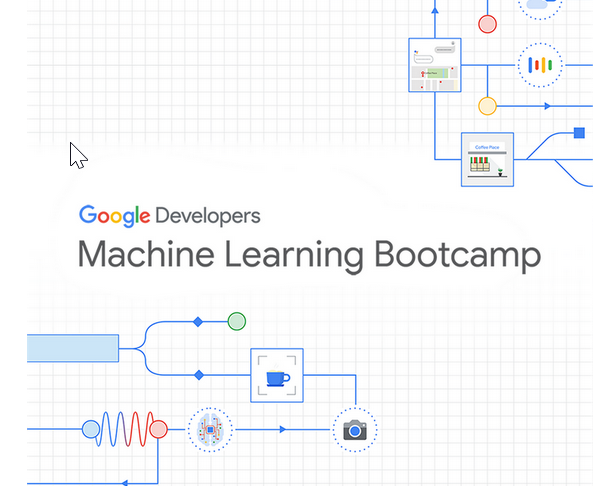Career in Cloud Engineering: How to Get There
Cloud Engineering - A Career in the Cloud Age

If you’re interested in a career in cloud engineering, you’re in luck: the job market for cloud engineers is snowballing. Cloud engineering is a growing field that deals with developing and managing clouds of servers and applications. In this rapidly changing industry, Cloud Engineering has the opportunity to work in a wide range of industries, from financial services to healthcare. And with the recent growth in cloud-based software and hardware, there’s no doubt that Cloud Engineering is thriving.
The cloud engineering field is constantly growing, making it an excellent career choice for those interested in technology and computer science. The Cloud Credential Council (CCC) recently reported that the number of certified cloud engineers has increased by more than 270 percent over the past year. With the current state of the cloud, any engineer can be a part of its success. However, if you want to chase a career in this cutting-edge field, you first need to understand the basics of cloud engineering.
This article will outline what cloud engineering is, what cloud engineers do, the skills required for the role, and how to get started on a career path to becoming a cloud engineer.
What is Cloud Engineering
Cloud engineering is the process of designing, creating, and managing cloud-based systems. This can include anything from developing new applications that run in the cloud to moving existing applications to the cloud to optimizing and securing existing systems. Cloud engineering requires different skills than traditional IT engineering since it involves working with distributed systems and dealing with many other vendors and technologies.
The main advantage of using a cloud platform is that it can provide a business with access to the latest technology without investing in hardware or software. This can save time and money and can be especially beneficial for small businesses starting. Cloud platforms also make it easy to scale up or down depending on needs, which can be helpful if a business experiences rapid growth or a slowdown in activity.
There are three main types of cloud engineering: infrastructure, application, and data processing. Infrastructure cloud engineering deals with creating, maintaining, and using infrastructures such as servers and networks. Application cloud engineering focuses on developing software applications that businesses and government organizations can use. Finally, data processing cloud engineering helps companies process large volumes of data quickly and easily.
Cloud computing platforms allow businesses to run applications on them without worrying about space or CPU time. Additionally, cloud computing platforms allow businesses to access data and applications from any device, even if it’s not connected to the internet. This means that businesses can be reachable from anywhere in the world.
What are clouds?
Clouds are computer systems that use the internet to provide remote access to applications and files. They are similar to the way your computer uses the internet. When you access an application or file on a cloud, it is stored on a remote server. This allows you to access the application or file even if you’re not located at the exact physical location as the server that holds it.
cloud basics: what you need to know
Cloud computing is a way to run applications in a remote environment. This means that businesses can now run their applications without worrying about the time or location of the application. As a result, this technology can revolutionize how businesses operate.
The Cloud Revolution
Cloud computing has brought about a revolution in computing and technology usage. It has made it possible for individuals and businesses to access technology resources anywhere. Gone are the days of purchasing and maintaining expensive hardware and software. With cloud computing, you can now pay for what you need as you need it.
This paradigm shift has been made possible by advances in cloud engineering. Cloud computing is the process of using the internet to run applications. So instead of downloading and installing an application, you can run it on demand. You can also use the cloud to store data. So if you lose your laptop, your data is safe and sound.
Cloud Engineering Jobs and Careers
Cloud computing is the future of information technology. It is a highly relevant field that offers many opportunities for career growth. This is evidenced by the fact that more and more businesses are switching to cloud-based systems. As a result, there is an increasing demand for cloud engineers. If you are thinking about making a career transition to cloud engineering, now is a great time. The job market for cloud engineers is booming, and the pay is excellent.
Cloud engineering jobs are becoming more and more common. With the growth of the cloud, more and more companies are looking to outsource their cloud engineering services. As a result, there is a growing demand for engineers who have experience working in the cloud. Cloud engineering jobs are available in various industries, including technology, retail, health care, aviation, etc.
The good news is that there are many different types of jobs in the cloud engineering field. So, whether you are interested in system administration, network engineering, or software development, there is likely a position that will fit your skills and interests. In addition, most companies are willing to train new employees to fill their specific needs.
The key to finding a job in this field is to keep your skills up to date. Technology changes quickly, so it is important to be able to stay current with the latest trends and developments.
The pros of cloud engineering are that it is a high-demand field with many job opportunities, and the pay is good. The cons of cloud engineering are that it is a new field, and few schools offer degrees, although many online schools offer hands-on training and a diploma in cloud engineering.
What does a Cloud Engineer Do?
Cloud engineers are a relatively new role in the technology industry and are growing in demand. Cloud engineers are responsible for designing, creating, and managing cloud-based systems.
They work with clients to understand their needs and create solutions that meet those needs. Cloud engineers must be able to work with a variety of software and hardware platforms, so they need to have a strong technical background. They also need to be able to think strategically, as designing and implementing cloud-based systems can be a complex process.
The responsibilities of a cloud engineer include creating and maintaining cloud architecture, developing cloud applications, and ensuring system security.
Cloud engineers typically have a bachelor’s degree in computer science or a related field. This position requires a unique blend of technical skills and business knowledge, making it ideal for those who want to work in a fast-paced, ever-changing environment.
What do you need to become a Cloud Engineer?
There is no one-size-fits-all answer to this question, as the necessary skills and training vary depending on the organization. However, a few key areas of knowledge are essential for any cloud engineer.
- First, they must have a strong understanding of computer system administration, security, networking, and how to deploy and manage them. They must also be familiar with the principles of cloud computing, including virtualization and elasticity.
- Another essential prerequisite is training. You can get this from traditional educational institutions, like colleges and universities, or technical training providers such as Pearson VUE and CompTIA.
- Cloud engineers should be well-versed in specific cloud technologies, such as Amazon Web Services (AWS), Google Cloud, or Microsoft Azure.
- Certification is also important for cloud engineers. AWS offers several certifications for its platform, including the Associate-level certificate for those just starting in the field. Azure also offers certification paths covering both technical and business topics.
Cloud engineering skills are not limited to just computer science or software development. In fact, many cloud engineers also need experience in business, marketing, and other areas. In addition, many cloud engineers also need to understand the cloud platform and how it works.
Cloud Engineering Certification
Cloud engineering certification is a process that ensures proper training and competence in cloud-based systems. Cloud engineering certification is an important step for anyone looking to work with or manage cloud-based systems. The certification process includes rigorous coursework and exams and can be the difference between a successful career in cloud technology and one that stalls out.
Certification bodies like Cloud Academy and other cloud training platforms offer courses covering all aspects of cloud engineering, from design to deployment. The courses are tailored to help students pass the exam and provide real-world experience through hands-on labs.
Obtaining certification from cloud technology providers will also be an advantage to anyone pursuing excellence in the industry. Amazon Web Service (AWS), Microsoft Azure, and Google Cloud are the leading providers of cloud services, and engineers who are certified in one or more of these platforms have a distinct advantage in the job market.
Obtaining a certification from any of these providers will give you a strong foundation in cloud engineering. In addition, it will show that you have undergone proper training to master the use of different cloud technology providers, especially in your chosen platform. However, choosing the right provider can be difficult.
Each provider offers different certifications that cover different areas of cloud technology. For example, Amazon Web Service (AWS) offers the most comprehensive certifications, while Google Cloud has the most recent certifications. Microsoft Azure has a good mix of both.
- AWS offers two certifications: AWS Certified Solutions Architect and AWS Certified Developer. The Solutions Architect certification is for engineers who design and deploy applications on AWS, while the Developer certification is for engineers who develop applications on AWS.
- Microsoft Azure offers the Microsoft Certified Solutions Expert (MCSE): Cloud Platform certification, covering Azure public cloud and hybrid deployments.
- The Google Cloud Platform has the Google Cloud Certified Professional – Data Engineer certification, which covers data engineering on the Google Cloud Platform.
The benefits of earning a cloud engineering certification are many. First, certification holders are often seen as leaders in the field and are often in high demand by employers.
When deciding which provider to choose for certification, it is important to consider your experience and goals. For example, if you are already experienced in AWS and want to become certified, AWS is the best choice. On the other hand, if you are starting as a newbie, Google Cloud may be a better option.
Online Platforms to Learn Cloud Engineering
There are numerous online platforms available to learn cloud engineering. These platforms typically offer training and certification programs, as well as opportunities to connect with other professionals in the field. Some of the most popular online platforms include The Cloud Academy, CompTIA’s A+ certification program, and Udacity’s Nanodegree program. These platforms can be a valuable resource for anyone interested in learning about cloud engineering or pursuing a certification or career in the field. Some of them offer Free courses, and others are paid courses. You can also check for scholarships and fee waiver available options.
- Udacity School of Cloud Computing
- Alx-t
- Coursera
- LinkedIn Learn
- Google Cloud Platform
- Cloud Academy
- AWS Platform
- Udemy
- Microsoft Azure Platform
- CompTIA Cloud Training
- Edx.Org
- Pluralsight
- Future Learn
- Data Camp
- Alison
Cloud Engineering Salary
Cloud engineer salary can vary greatly depending on the role and company. However, most cloud engineers earn an annual salary of around $100,000 – $130,000 or more. Some companies may offer a higher hourly wage, while others may have a higher salary with additional benefits. Salaries can also vary depending on experience and skill level.
Cloud engineers typically have a high demand for their skills, so it is important to research the market value for these positions before accepting any offers. However, many companies are starting to pay cloud engineers hourly rates instead of salaried rates. The average hourly rate for a cloud engineer is $75 per hour.
Additionally, as a competent cloud engineer, you can also work as a Freelance Technical Writer. Youcan choose to write to provide knowledge on things related to cloud computing. A freelance technical writer can be paid up to $1000 per article.
Cloud Computing Platforms
Cloud computing technology platforms are software as a service (SaaS), platform as a service (PaaS), and infrastructure as a service (IaaS) offerings that enable businesses to outsource the management and operation of their information technology (IT) systems. Cloud computing technology platforms provide on-demand access to IT resources, which can be scaled up or down to meet the needs of businesses of all sizes.
The three primary cloud computing technology platforms are:
1. SaaS: Software as a Service is a model where software is hosted by the provider and made available to customers over the internet.
2. PaaS: Platform as a Service is a model where providers offer complete development environments, including tools, services, and hosting, so that customers can develop, test, and deploy applications without having to worry about the underlying infrastructure.
3. IaaS is the fastest-growing segment of the cloud technology platform market. Infrastructure as a Service (IaaS) is an offering in which the provider delivers compute resources—servers, storage, networking, and operating systems—that allow you to deploy your applications on their infrastructure.
Cloud Computing Technology Provider
A cloud computing technology provider is a company that sells or leases hardware, software, and services that allow customers to create and manage their own private or public clouds. Cloud-based services are delivered using the internet instead of traditional methods like installing software on local computers.
The Cloud Computing technology provider market is growing rapidly as businesses move away from traditional IT models and adopt cloud-based solutions. The providers in this market offer a wide range of services, making it easy for businesses to find a solution that meets their needs. In addition, the providers are constantly innovating, which means they can offer new features and enhancements that keep their customers ahead of the competition.
When choosing a cloud computing technology provider, it is important to consider the company’s track record and its ability to meet your specific needs. The three most popular cloud computing technology providers are AWS, Microsoft Azure, and Google Cloud. Each platform has its own set of features that make it unique. All three offer a wide range of features that allow users to quickly and easily set up and run applications in the cloud.
- AWS is the most popular platform for developing and deploying applications. It has a large selection of services that you can use to build your applications. It also has a large community of developers who can help you with your development projects.
- Microsoft Azure is the second most popular platform for developing and deploying applications. It has a large selection of services that you can use to build your applications. It also has a large community of developers who can help you with your development projects.
- Google Cloud is one of the most popular cloud computing technology platforms. It offers a wide range of services, including storage, computing, big data, machine learning, application development, etc. Google Cloud is also highly scalable and makes it easy to manage resources. Additionally, it’s cost-effective and offers a pay-as-you-go pricing model.
Most platforms also include a graphical user interface (GUI) that allows you to drag-and-drop resources to create your application. This can be a great help for developers who are new to the cloud.
The future of Cloud engineering
Cloud engineering is the future of technology. It provides a fast, efficient way for companies to run their applications, and it’s able to scale to meet the needs of ever-growing populations. For example, if you’re a small business that wants to get into the cloud, you need to be prepared for all the changes that will come along with it. For example, Amazon will soon be releasing its cloud platform to allow businesses to run their applications on a more personal level. This means that businesses will no longer rely on centralized systems or wait for long periods for their products and services to arrive. In addition, Google is now offering its cloud platform that businesses can store and manage their data. This means that businesses can keep all their data in one place and not worry about where it’s stored or how it’s accessed.
In conclusion, a career in cloud engineering is an exciting and rewarding opportunity. It offers a wealth of opportunities for growth and development and the potential to make a significant impact on the world. If you are interested in pursuing a career in cloud engineering, I encourage you to do your research and see if this is the right path for you. There are many resources available to help you get started. The best way to find out if this is the right career for you is to try it yourself. So why not give it a shot? You can achieve great things in this field with hard work and dedication. You can also check other high demand tech skills you can learn apart from cloud engineering. Thank you for your time, and I hope you find what you are looking for.




